

La Reserva de ¡Tierra! Cuba
Organic coffee, 100% from plantations supported by the Lavazza Foundation.
Profiling and Roasting
Espresso balanced with a fair soul
A unique and premium blend of washed Arabica combined with washed Robusta and fermented for 72 hours, for a balanced flavor, with a velvety body and a delicate sweetness.
Notes of almonds, spices and milk chocolate and a smooth aftertaste of wine.
Coffee 100% from plantations supported by the Lavazza Foundation in Santiago de Cuba and Grandma, with 100% RFA organic certification and 100% recyclable mono-material pack.
Organic blend, composed of 65% washed Arabica, 25% washed Robusta and 10% fermented Robusta, which gives it greater aromatic complexity.
Notes of almonds, spices and milk chocolate and a smooth aftertaste of wine.
Coffee 100% from plantations supported by the Lavazza Foundation in Santiago de Cuba and Grandma, with 100% RFA organic certification and 100% recyclable mono-material pack.
Organic blend, composed of 65% washed Arabica, 25% washed Robusta and 10% fermented Robusta, which gives it greater aromatic complexity.
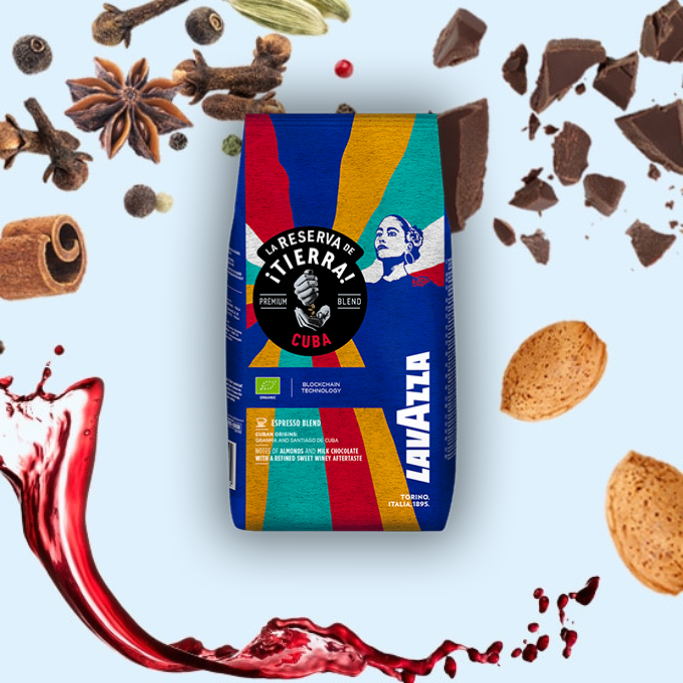
A SUSTAINABILITY STORY BEHIND EVERY CUP
The Lavazza Foundation, together with 170 farmers from the Santiago and Granma areas, works to promote development and improve the quality of Cuban coffee, acting in 5 areas: forest preservation, improvement of agricultural practices, improvement of coffee quality, empowerment of women and youth and promoting a shorter supply chain.
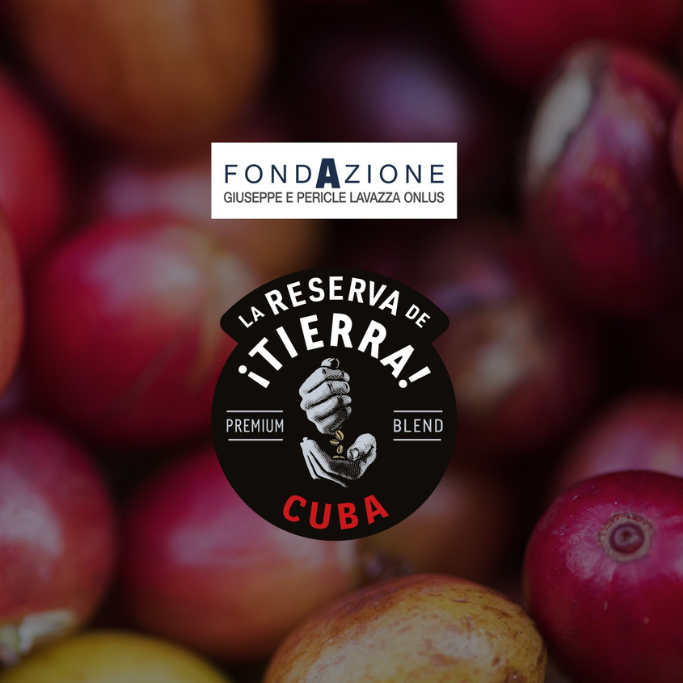
A COFFEE TRIP THROUGH CUBA
La Reserva de ¡Tierra! Cuba is a unique contemporary story of a coffee that cares about coffee producers, consumers and the environment. Thanks to blockchain technology, it is possible to follow the journey of coffee and the brand's commitment to sustainability.
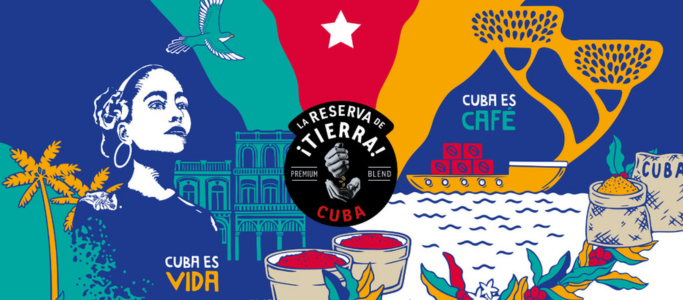
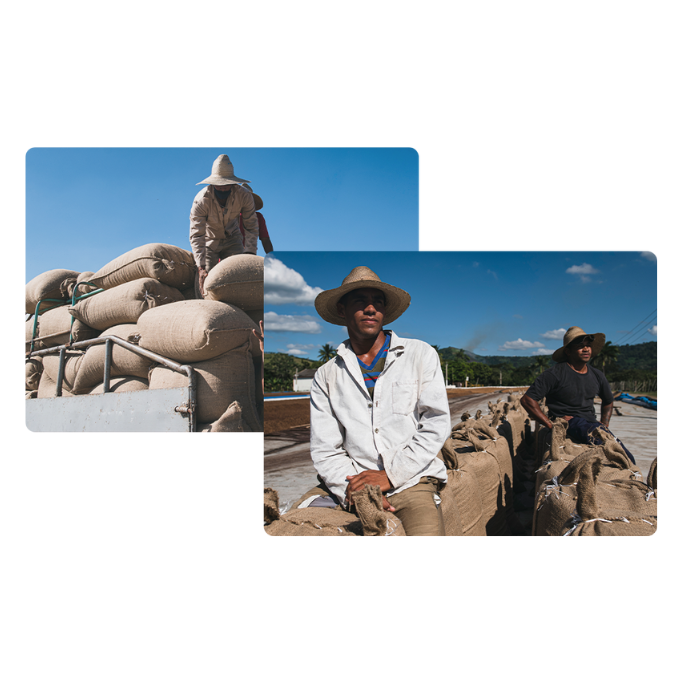
FOREST PRESERVATION
Coffee is an important part of Cuba's cultural and natural heritage. The cultivation of La Reserva de ¡Tierra! Cuba takes place in forested areas within Natural Reserves, managed and regulated by the Agro-Floresta Group, whose role is to preserve the ecosystem and promote culture, tradition and environmental conservation in mountainous areas.
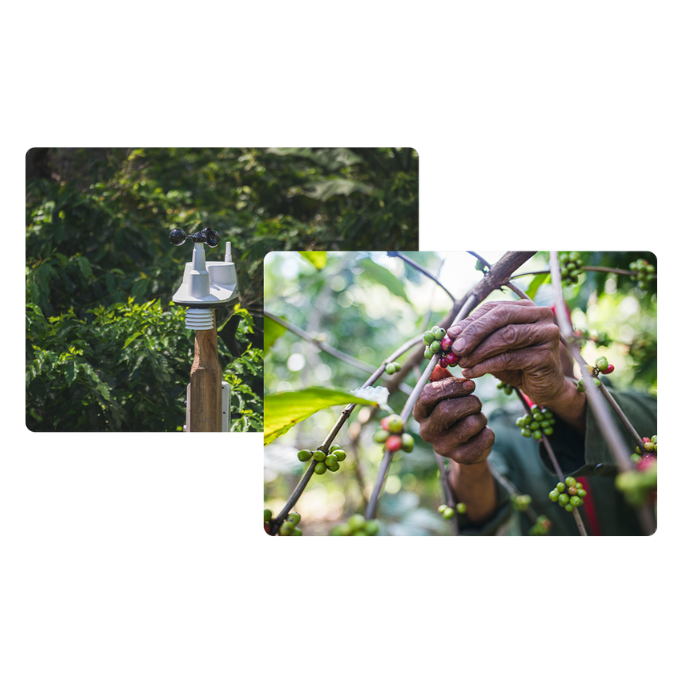
IMPROVEMENT OF AGRICULTURAL PRACTICES
The Lavazza Foundation supported coffee communities in obtaining organic certification and implementing an agroecological approach, with the creation of 34 schools that trained coffee producers and technicians in good agricultural practices and sustainable coffee cultivation.
Thanks to these schools, coffee growers have adopted circularity practices, using natural fertilizers obtained from coffee production residues and carrying out a biological and integrated management of pests.
Thanks to these schools, coffee growers have adopted circularity practices, using natural fertilizers obtained from coffee production residues and carrying out a biological and integrated management of pests.
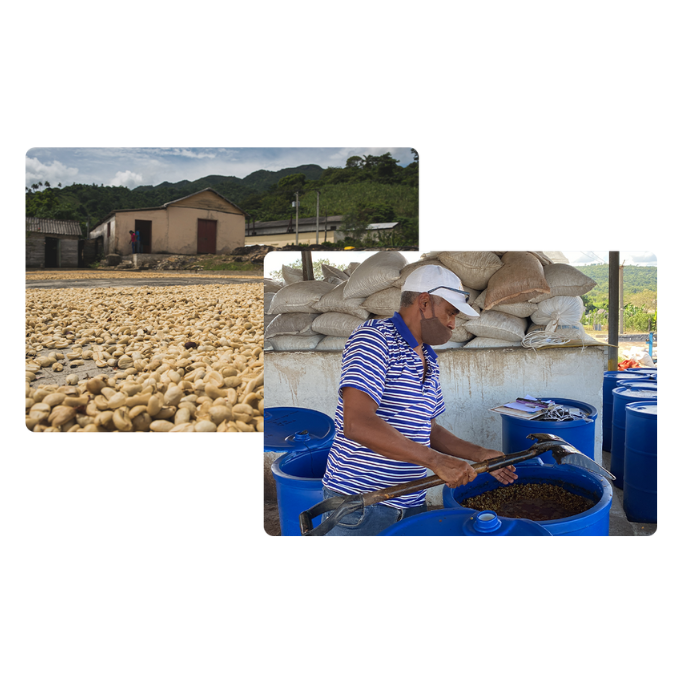
IMPROVEMENT OF COFFEE QUALITY
The quality of Cuban coffee is the result of the joint efforts of farmers, agronomists, the Lavazza Foundation and Lavazza R&D.
Lavazza promoted the renewal of plantations and the installation of sensors that monitor environmental parameters to improve their management. Lavazza also implemented a controlled Robusta fermentation process, with selected yeasts, to increase the complexity of the blend's flavor.
Lavazza promoted the renewal of plantations and the installation of sensors that monitor environmental parameters to improve their management. Lavazza also implemented a controlled Robusta fermentation process, with selected yeasts, to increase the complexity of the blend's flavor.
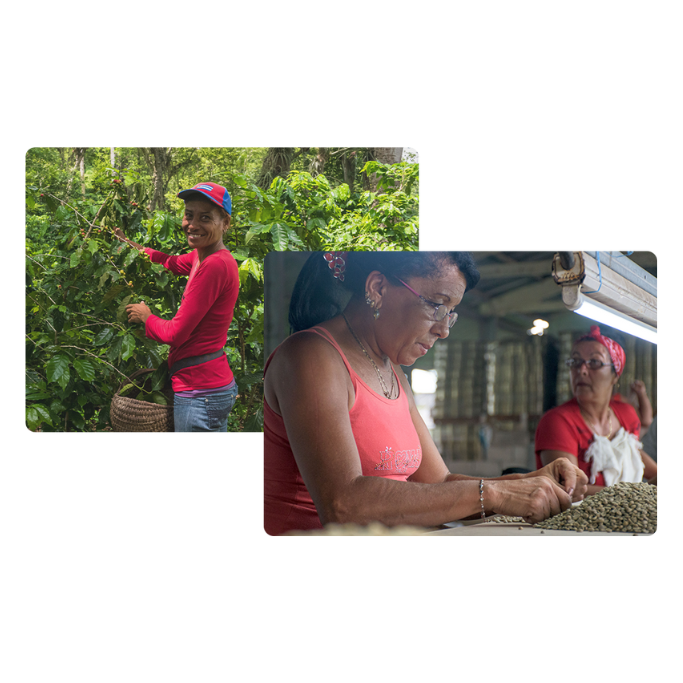
THE IMPORTANT ROLE THAT WOMEN PLAY
In collaboration with local communities and the government, the Lavazza Foundation promotes education initiatives aimed at involving younger generations and women in production centers and in the coffee selection process, promoting stable employment throughout the year.
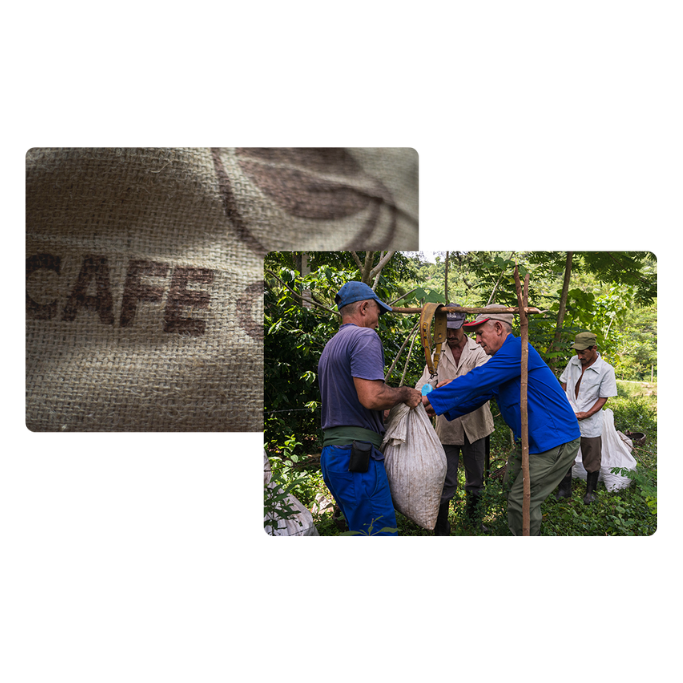
SHORT AND EQUITABLE SUPPLY CHAIN
The Lavazza Foundation works with local communities to simplify the supply chain model by shortening it, with the aim of putting a greater focus on key activities in the coffee production process and as much value as possible in the hands of coffee farmers.